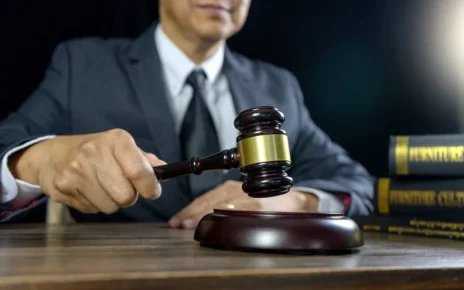Have you ever wondered if the police can haul you in for questioning if they don’t have a warrant? Many people assume officers need probable cause or a warrant before bringing someone to the station. But in reality, the rules around police questioning are more complex.
We understand how confusing and intimidating interactions with law enforcement can be. With this blog, our goal is to help you understand your rights, feel empowered, and get the best possible outcome if questioned by police without a warrant.
Do You Have Rights During Police Questioning?
Absolutely. The Constitution provides protections for all citizens against self-incrimination and unreasonable search and seizure. There are two essential rights to keep in mind if questioned by the police:
Your Miranda Rights
Thanks to the landmark Supreme Court case Miranda v. Arizona, officers must inform you of your rights if you are in police custody. These include:
- The right to remain silent
- The right to have an attorney present during questioning
Once you invoke your right to remain silent or ask for an attorney, officers must stop questioning you.
The Right Against Self-Incrimination
The 5th Amendment guarantees your right against being compelled to make self-incriminating statements. You are not required to answer questions from the police, though refusing to cooperate could raise suspicions.
When Can Police Question You Without a Warrant?
In North Carolina, officers don’t need a warrant to bring someone in for questioning. But there are limitations around how and when they can conduct questioning:
Investigatory Questioning
If police suspect you’re connected to a crime, they may bring you in for investigatory questioning. This means you are not free to leave until the questioning is over. Investigatory questioning can happen even if you aren’t under arrest.
Refusing to answer questions during this type of interrogation could lead officers to detain you. So it’s important to tread carefully.
Voluntary Questioning
Police can also initiate voluntary questioning to gather information about a crime. During voluntary questioning, you are free to leave at any time.
If an officer starts asking you questions, politely ask if you are being detained or are free to go. This helps you understand your rights in that situation.
Protecting Your Rights During Police Questioning
Being questioned by police can be an intimidating and vulnerable experience. Here are some tips to protect your rights:
Ask for An Attorney
Once you request an attorney, officers must stop questioning you until your lawyer arrives. This simple act provides powerful protection against self-incrimination.
Of course, asking for counsel could raise suspicions about your innocence. But protecting your constitutional rights should be the priority.
Remain Silent
Other than providing basic identifying information, you are not required to answer an officer’s questions, even if you are not under arrest. Be polite but firm that you wish to remain silent until you have legal counsel.
Record the Interaction
If possible, discreetly record any questioning by police. This provides evidence if officers violate your rights or use unethical interrogation tactics.
Ask If You Are Free to Leave
During voluntary questioning, confirm if you are being detained or are free to end the interaction and leave. This helps you understand your rights.
Consult an Attorney
Before agreeing to any questioning, it’s wise to consult with a criminal defense lawyer. An experienced attorney can advise you on how to protect your rights in interactions with law enforcement.
Having expert counsel in your corner provides tremendous peace of mind if questioned by police without a warrant.
What Happens If You Refuse to Cooperate?
To be clear, you have a constitutional right not to answer an officer’s questions, even if you are brought in for investigatory questioning. However, refusing to cooperate with police could backfire, especially if they already suspect your involvement in a crime.
Consequences could include:
- Being detained against your will
- Escalating suspicions of guilt
- Obstruction charges if you lie or give false information
So, while you aren’t required to answer questions, it’s usually wise to be polite, provide basic information, and ask for a lawyer. Total silence may not be in your best interest.
Work With Experienced Criminal Defense Counsel
Dealing with unexpected police questioning can be unnerving and frightening. But having an advocate who understands your rights makes all the difference.
The criminal defense attorneys at McMinn, Logal & Gray PLLC have represented hundreds of clients during police questioning and investigations. They know your rights inside and out and can make sure officers follow proper protocols if they want to question you.
If you or a loved one end up being brought in for police questioning, contact their team right away. With experienced counsel in your corner, you can feel confident the interaction will go as smoothly as possible.





